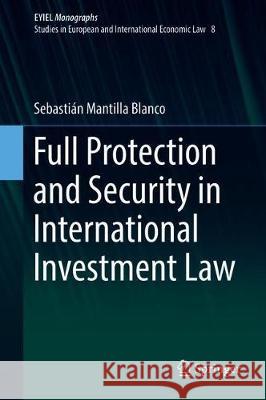Full Protection and Security in International Investment Law » książka
topmenu
Full Protection and Security in International Investment Law
ISBN-13: 9783030248376 / Angielski / Twarda / 2019 / 690 str.
Full Protection and Security in International Investment Law
ISBN-13: 9783030248376 / Angielski / Twarda / 2019 / 690 str.
cena 645,58
(netto: 614,84 VAT: 5%)
Najniższa cena z 30 dni: 616,85
(netto: 614,84 VAT: 5%)
Najniższa cena z 30 dni: 616,85
Termin realizacji zamówienia:
ok. 16-18 dni roboczych.
ok. 16-18 dni roboczych.
Darmowa dostawa!
Kategorie:
Kategorie BISAC:
Wydawca:
Springer
Język:
Angielski
ISBN-13:
9783030248376
Rok wydania:
2019
Wydanie:
2019
Ilość stron:
690
Waga:
1.16 kg
Wymiary:
23.39 x 15.6 x 3.81
Oprawa:
Twarda
Wolumenów:
01
Dodatkowe informacje:
Bibliografia
Wydanie ilustrowane
Wydanie ilustrowane











